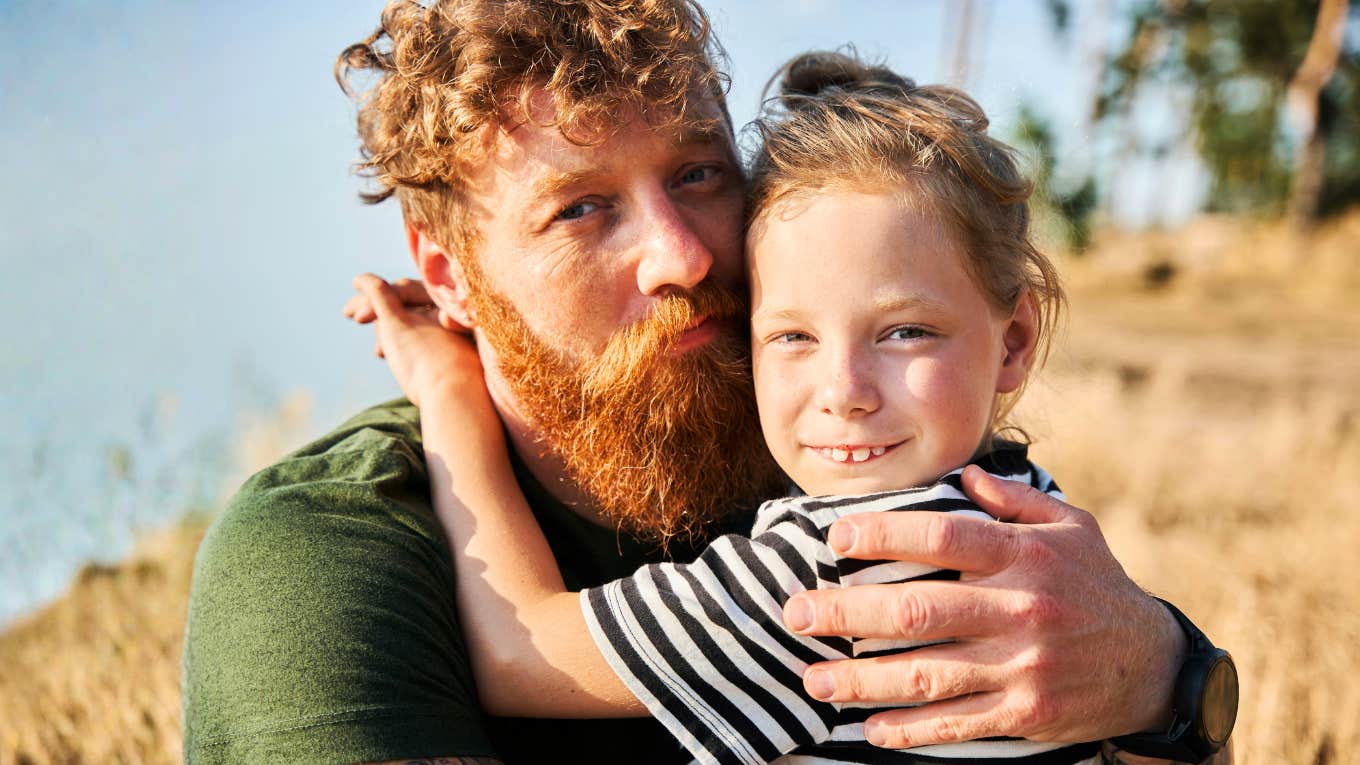The Art Of Fatherhood: 6 Science-Backed Ways Good Dads Change Their Kids' Lives Forever
Fatherhood science offers dads a unique approach to human love.
 Getty Images | Unsplash
Getty Images | Unsplash As a dad, you want to know the importance of the part you play in your child's future. If you're a good dad, you want to make sure you do your very best to be a positive influence and to give them the best shot. As it turns out, the neurobiology of love shows how dads who play a substantial role in raising their kids set their children up for a better chance at life-long well-being and happiness. .
Doctor Anna Meechan is evolving fatherhood science with a unique approach to the study of human love by combining the biological and social sciences. Dr. Meechan joined Andrea Miller on Getting Open to figure out what is going on with dads these days and shared some simple-but-effective ways dads can ensure their kids are getting their best start.
Six science-backed ways good dads can change their kids' lives forever
1. Staying present throughout life
An involved father is absolutely vital to a child's development. But men have to know what being an involved father looks like. Dads don't have to live with their children to be in the child's life. Fathers can contribute positively to their child's upbringing, and this is actually what their child needs most.
Being an involved father doesn't require any change of personality. All it takes is showing up regularly and actively. One of the primary effects fathers have on a child's development is engaging children in how to navigate pushing developmental boundaries. Good fathers show up and stand firm on boundaries while being kind and compassionate and adapting when need be. These boundaries help your kids feel safe and secure, even though they may try to push back against them from time to time.
2. Roughhousing
Fathers are often instinctively good at play. Particularly rough and tumble play, which is physical play. "Lots of shrieking, lots of laughing, lots of throwing around the room, wrestling, tickling, all that kind of stuff that's really great," explains Dr. Meechan. Fathers instinctively play rough and tumble with their kids, and their instinct is correct because this play is "the most wonderful behavior for bonding," she explains.
Meechan continues, "Rough and tumble play starts teaching children about the give-and-take social interaction. It helps build their resilience because it's not the easiest form of play. It can be quite risky and challenging. You might get hurt, and you have to kind of pick yourself up and dust yourself off."
3. Playing with them
 Estrada Anton via Shutterstock
Estrada Anton via Shutterstock
The bigger problem many men have a lack of confidence as parents. They have been taught to look at the mother to set the standard for parenting. Men tell themselves they should be parenting like their partner and have the same kind of relationship with their child. It's simply not true. Kids need playtime with dad, the way their unique dad plays.
Kids are not supposed to have the same relationship with both parents. Kids need different relationships so they get different input on behavior, interaction, and communication. For fathers, the best way to bond with their child is through play. As Dr. Meechan says, "Play is physical. It's very important to open a child to challenge and risk, which is important for resilience building."
Play is also imaginative at times. If a dad doesn't feel confident with one type of play, he can try another. The point is to consistently engage and have fun — no lectures allowed! Added bonus: Play is good for adults, too.
4. Accepting them
Rough and tumble play is great, to a point, in a child's development. But tweens and teens, in particular, can be tricky for dads because they are good at pushing fathers away. The most important thing for a father at this stage is to accept the teenager as they are.
Meecham cautions, "Don't try to change them. Don't try to change what they're interested in. Ideas about identity or whatever it might be, accept them. If a child is accepted by their father, it does a huge amount towards good self-esteem, good mental health." These factors are crucial to the success of a child in education and their future career.
5. Spending time, especially with teenagers
Children want their father's acceptance. The best way for fathers to show their acceptance is to spend time with their teenager. Meecham explains, "Children measure how important they are to their parents differently, and how important you feel to your parents is really important to your self-esteem."
For children looking at their father, the most lacking capacity is generally his time. It's vital for dads to spend time with their teenagers. A father's precious commodity of time is the biggest way he shows he cares.
Research shows that tweens and teens often communicate best when moving or working on a project. So take a hike, throw a ball, cook or bake something together, and allow them to feel valued.
6. Accepting them, no need for perfection
You can be any age and still want your dad to validate you. Validation from a father can leave a big hole when unfulfilled. That's why it's so important to accept your child for who they are. You also need to accept yourself and the past. If youd didn't parent perfectly, at any point in his life, a good dad can say, "You know what? I didn't parent in the way a parent should, and I'm sorry."
This loops back to being involved, actively playing, and productively pushing boundaries. Even when done wrong, both father and child learn and grow. The crucial factor is owning up to the mistake sooner rather than later.
An involved father admits those mistakes either in the moment, when he realizes it, or when the child themselves directly points out an issue. Despite when it happens, the most important thing is to be there. Make the mistake, learn, and grow together. That's what being a father is.

